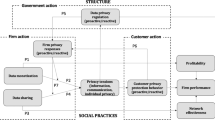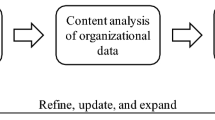Abstract
Can consumer ownership schemes provide a more democratic financing mechanism for the online marketplace? When it comes to being successful as an online platform, size matters. The network effect, which tells us that the value of a platform increases exponentially as a function of the user base, creates a natural concentration of power, if you’re a vendor trying to sell or advertise products, you will pick the platform with the largest audience. The network effect also creates an exit barrier, as moving to a competing platform without the same reach and user base means fewer potential customers. The consumer ownership scheme that I will be focusing on is the Consumer Stock Ownership Plan pioneered by Louis Kelso. The CSOP is a method of corporate finance that enables consumers to buy an ownership interest in a company on which they heavily rely. It is a democratic capitalistic tool to mitigate the harm caused monopolies or oligopolies. A CSOP does not require consumers to buy the company’s shares in the stock market. Instead, the company acquires its shares in a trust on behalf of consumers and uses dividends to amortise the investment. Shares that are fully amortised are transferred to their owners. In this essay, I make the case that CSOP financing for online marketplaces makes sense for three reasons.
A CSOP does not discriminate against those who lack the capital to acquire shares in the first place;
Users are an integral part of the value proposition of an online marketplace. A CSOP acknowledges this fact by making users owners.
Users’ data generates value, which indirectly flows back to users in a CSOP.


Similar content being viewed by others
Notes
Well at least the right of the American people, whose tax dollars funded the research and investment that created the Internet [4].
References
Katz ML, Shapiro C (1994) Systems competition and network effects. J Econ Perspect 8(2):93–115
Kelso L, Adler M (1958) The capitalist manifesto. Random House, New York
Kelso L, Kelso PH (1986) Democracy and economic power: extending the ESOP revolution through binary economics. Ballinger Publishing Co, Cambridge
Levine Y (2019) Surveillance valley : the secret military history of the internet. Icon Books Ltd, New York
Menychtas A, Gomez SG, Giessmann A, Gatzioura A, Stanoevska K, Vogel J, Moulos V (2012) A marketplace framework for trading cloud-based services. Economics of grids, clouds, systems, and services, [online] pp.76–89. https://dl.acm.org/citation.cfm?id=2238304. Accessed 20 Apr 2019
Moore GE (1998) Cramming more components onto integrated circuits. Proc IEEE 86(1):82–85
Author information
Authors and Affiliations
Corresponding author
Rights and permissions
About this article
Cite this article
Vogt, J. What if we had a democratic, capitalistic online marketplace?. Informatik Spektrum 43, 23–27 (2020). https://doi.org/10.1007/s00287-020-01244-9
Published:
Issue Date:
DOI: https://doi.org/10.1007/s00287-020-01244-9




